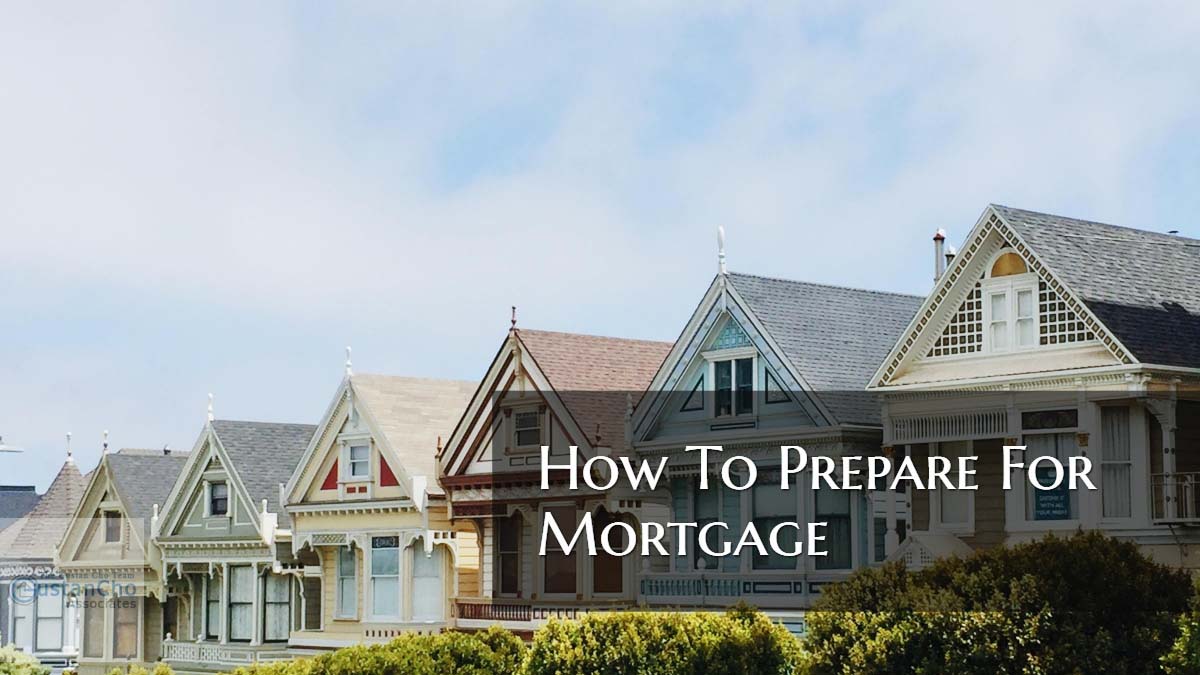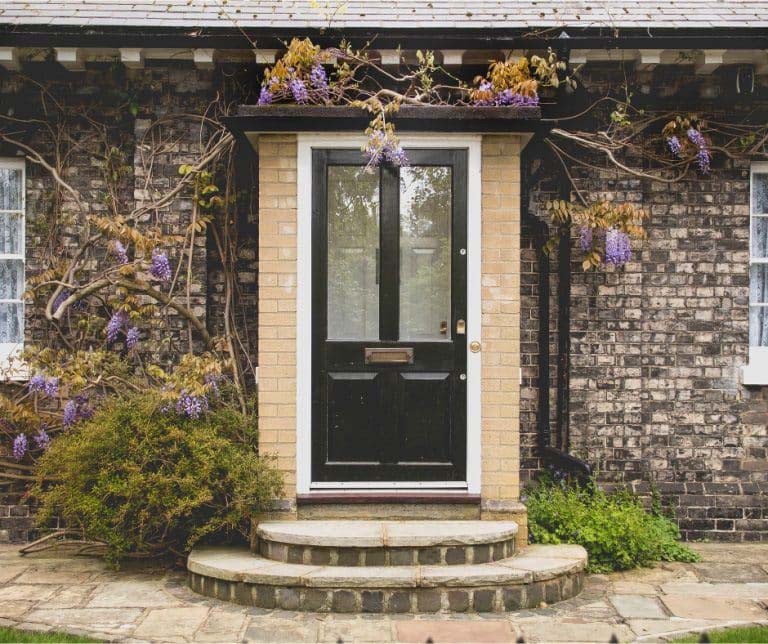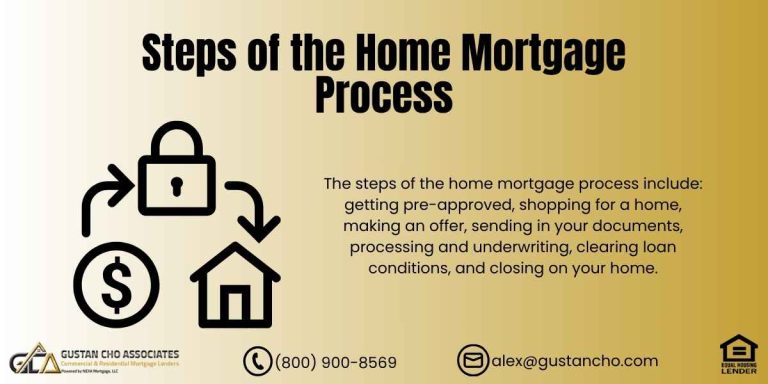This guide covers how to prepare for mortgage for first-time homebuyers. The best way on how to prepare for mortgage is to first consult with a loan officer. Do not just talk to one loan officer but many loan officers and due to your own research. Dale Elenteny, a senior mortgage loan originator at Gustan Cho Associates says the following about how to prepare for mortgage for first-time homebuyers:
Follow 2025 mortgage prep steps for first-time buyers: improve credit, budget hidden costs, compare lenders, and avoid rookie mistakes for homeownership success.
As you talk to more loan officers, you will get different answers to your questions so that is where doing your own research comes in. In this article, we will discuss and cover how to prepare for mortgage for first-time homebuyers. In the following paragraphs, we will cover how to prepare for mortgage for first-time homebuyers.
How To Prepare For A Mortgage For First-Time Homebuyers
Check Your Credit Score—The First Step Toward A Great Mortgage
The best way to kick off your journey toward a home is to look at your credit score. Lenders use this three-digit number to decide how likely you are to repay a loan. For a conventional mortgage, a score of at least 620 is the minimum, but if you can get it to 740 or higher, you’ll unlock the best interest rates.
You can get free credit reports from all three bureaus—Equifax, Experian, and TransUnion—once a year at AnnualCreditReport.com.
After you get the reports, look for mistakes, old debts, or anything that should not be there. These can drag your score down. To boost your score, pay your bills on time, pay off high credit card balances, and avoid taking out new loans or credit cards in the months before you apply. The better your score, the better the loan you’ll get, saving you thousands in interest over time. Fixing your credit is the first and most important step in preparing for mortgage approval.
First-Time Buyer? We’ve Got Your Back
Preparing for your first mortgage doesn’t have to be overwhelming — we’ll show you how.
Saving for a Down Payment: Smart Tips for First-Time Homebuyers Getting Ready for a Mortgage
The most important part of getting ready for a mortgage is saving for a down payment. This is usually between 3% and 20% of the home’s price. First-time buyers can look at FHA loans, which let you put down just 3.5%, while most conventional loans require 5% or more. Start by choosing a realistic target amount based on the home price you expect in your area by 2025.
Set up automatic transfers to a high-yield savings account so your money grows without extra effort. To speed things up, cut back on things you don’t need, like takeout meals or extra streaming services.
Check for down payment assistance programs from your state housing agency or workplace. These programs might offer grants or low-interest loans to help. The bigger your down payment, the smaller your loan will be, which means smaller monthly payments and a higher chance of skipping private mortgage insurance, or PMI. This puts you in a better spot when you start house shopping.
Getting Pre-Approved: A Smart Move for Rookie Homebuyers
Getting a mortgage pre-approval can boost your homebuying confidence as a first-timer. During this step, a lender looks at your income, assets, debts, and credit score to give you a written estimate of how much money you can borrow. A solid pre-approval tells sellers you mean business and can close the deal faster.
To find the best deal, reach out to at least three lenders. Check interest rates, closing costs, and loan terms. Online mortgage calculators can help you figure out how much you can afford.
With interest rates changing in 2025, locking in early pre-approval can help you avoid higher costs later. Always submit clear and accurate paperwork to keep the process speedy. Most pre-approvals last between 60 and 90 days, so you’ll have enough time to find the right home while showing you’re financially ready to buy.
Choosing the Right Mortgage Type: A Simple Guide for First-Time Homebuyers
Picking the right mortgage is one of the biggest steps when getting ready for a mortgage, especially if it’s your first time. You’ll usually see these main types: Conventional loans need a solid credit score and a down payment that starts around 3%. FHA loans are great if your credit isn’t perfect; they ask for just 3.5% down, but do have mortgage insurance.
VA loans are for qualifying veterans and require no down payment at all. USDA loans are for folks buying in rural areas and come with no down payment.
You’ll also need to decide between a fixed-rate mortgage, where the payment stays the same for 15 or 30 years, and an adjustable-rate mortgage (ARM), which starts lower but can go up. Think about how long you plan to live in the home. If you want to plant roots for a long time, the fixed-rate loan may be a better pick. Visiting a mortgage advisor can help you find the choice that fits your budget and matches your long-term goals, especially with the mortgage market changing in 2025.
Budgeting for Additional Costs: Hidden Expenses in Mortgage Preparation
First-time homebuyers must look beyond the down payment when getting ready for a mortgage. Closing and ongoing expenses can sneak up on you and usually add up to 2-5% of the loan amount. These costs include the appraisal fee to value the home, title insurance to protect your ownership, the origination fee the lender charges to process the loan, and the initial escrow setup for property taxes and insurance.
You also have to think long-term. Property taxes, homeowners’ insurance, and any homeowners’ association (HOA) fees can vary greatly based on where you live.
A budget app or a simple spreadsheet can help you track all monthly payments, including principal, interest, taxes, and insurance—often called PITI. Keep an eye on the market: in 2025, home prices are expected to keep climbing, so adding a little cushion to your estimates is wise. Do not wipe out your emergency savings. After you close on the home, you should still have 3 to 6 months’ worth of living expenses set aside. By planning for these hidden costs, you can avoid financial stress and enjoy a smoother move into your new home.
Getting Your Documents Ready: Making Your Mortgage Application Smoother
Having the right paperwork ready is the secret to getting a mortgage easily. Lenders usually ask for some info: proof of income like pay stubs, your last two W-2 forms, and two years of tax returns. You’ll also need to confirm where you work, share recent bank statements, show a form of ID, and list any other debts or valuable assets you own. The bank might also want monthly profit and loss statements if you’re self-employed.
To stay organized, create digital folders for each document type so everything is just a click away. In 2025, most lenders will still prefer you to upload your documents straight to their secure portals.
Submitting them digitally speeds things up, but make sure you upload everything they ask for. They might ask for more info if something is missing, which can slow you down. The sooner you hand over a complete set of papers, the faster you can get a thumbs-up. With the paperwork out, you’ll have more time to find the home you want.
Shopping for Lenders: How to Score the Best Mortgage Rates
If you’re a first-time homebuyer, comparing lenders is one of the smartest moves you can make before you buy a house. Start by asking a mix of banks, credit unions, online lenders, and mortgage brokers for quotes. Zero in on the annual percentage rates (APRs) since these numbers include both the loan cost and the fees.
Don’t forget to ask if you can get a break to set up autopay or join a special first-time buyer program. Many experts think rates might drop in 2025, so carefully timing your search could pay off.
Take a few minutes to read reviews and check lenders’ records on the Better Business Bureau or the Consumer Financial Protection Bureau (CFPB) database. If you opt for a mortgage broker, ask them up front what they charge to avoid surprise costs. Being a smart shopper might lower your interest rate by half a percent or more, which means you could save a ton of money over the life of the loan.
Steering Clear of Costly Mistakes: Mortgage Prep Missteps Every First-Time Buyer Should Skip
When buying your first home, it’s easy to trip over simple mistakes if you’re not careful about mortgage prep. First, never limit your budget. That exposes you to surprise repairs and life curveballs. Second, always insist on a home inspection. It’s your chance to catch deal-breaking issues before you sign.
Don’t take on a big new loan or switch jobs until you get the keys. Either one can sink your approval. Fourth, improve your credit and lock your mortgage rate when the market wobbles.
A slip can cost you thousands. Finally, in 2025’s unpredictable economy, stay updated through Fannie Mae and the CFPB. Avoiding these slips puts you on the smooth, confident road to homeownership.
Boost Your Chances of Approval
With the right prep, first-time buyers can qualify faster and with better terms.
2025 Winning Playbook: Smart Mortgage Moves for First-Time Buyers
With 2025 promising softer rates and more homes for sale, first-time buyers can get ahead by sharpening their mortgage prep.
Sign up for a homebuyer course through a HUD-approved agency; you’ll learn the ropes and might snag lender perks. Keep an eye on market changes using tools like Zillow or Realtor.com.
Form a close working bond with a real estate agent who knows the first-time space inside and out. Think about buying an eco-friendly home to tap into tax credits that can lighten your budget. By applying these steps, you’ll navigate the mortgage process and land a loan matching your life and future goals.
FAQs: How to Prepare For a Mortgage
What Credit Score Should a First-Time Buyer Have Before Applying for a Mortgage?
For a conventional mortgage, aim for a score of 620 or higher. FHA loans may accept scores starting at 580 if you want to make a bigger down payment. The higher your score, the better your interest rate usually is.
How Much Should I Set Aside for a Down Payment When Getting Ready to Buy?
You should plan to save 3–20% of the home’s price. First-time buyers can often get a conventional loan with just 3% down or a 3.5% down payment for an FHA loan. Many local programs can help cut that amount even more.
What Paperwork Do I need to Prepare for a Mortgage?
Collect your pay stubs, W-2s, recent tax returns, bank statements, a government-issued ID, and records of major debts or assets. Having these ready will speed up the mortgage application.
Is it Good to Get Pre-Approval Before I Start Looking for Homes?
Absolutely. A pre-approval letter signals to sellers that you are serious about buying and helps you know how much home you can afford. This can make your offer more appealing and smooth the process.
What Mortgage Types Work Best for First-Time Buyers?
Top choices include FHA loans, VA loans for veterans, USDA loans for rural areas, and conventional mortgages. A fixed-rate mortgage is often best for beginners since your payment can stay the same for the life of the loan.
How Can I Improve My Chances of Mortgage Approval as a First-Time Homebuyer?
To make approval more likely, pay down existing debts, bump up your credit score, save consistently, and compare several lenders. Once you apply, avoid any big financial changes.
What Extra Costs Should I Plan for With a Mortgage?
Plan for 2-5% of the loan amount in closing costs. You’ll also need to budget for property taxes, homeowners’ insurance, ongoing maintenance, and possibly PMI if your down payment is less than 20%.
Is a Mortgage Broker a Good Choice for First-Time Buyers?
A mortgage broker can tap into a wider pool of lenders and find you a better rate. However, always compare their fees and loan options to what you can get from lenders directly.
How Long is The Mortgage Prep Process for First-Time Buyers?
Getting pre-approval usually takes a few days to a couple of weeks. Full approval and closing take another 30-60 days, starting the prep well before your moving date is set.
What Mistakes Should I Avoid in 2025 While Preparing for a Mortgage?
Avoid the urge to overspend, skip a home inspection, or switch jobs right before closing. Keep an eye on interest rates and turn to dependable sources for advice.
How To Prepare For Mortgage For First-Time Homebuyers
I highly recommend that you get started on how to prepare for mortgage as soon as possible. Here are some reasons why. Higher credit scores mean lower rates. There are basic tricks of the trade to boost credit scores. John Strange, a senior mortgage loan originator at Gustan Cho Associates says the following about how to prepare for mortgage for first-time homebuyers.
Most loan officers will be able to help borrowers to maximize their credit scores. Everything in the mortgage process does take time and cannot be done overnight.
Consumer credit reports may contain errors. It can take several months to correct the errors. Consumers may not have credit disputes on credit report. However, credit disputes with zero balance and/or under $1,000 balance is exempt from retractions. Medical credit disputes are exempt as well.
Mortgage Guidelines on Credit Disputes
Borrowers cannot have credit disputes on non-medical collection accounts and charge off accounts. Borrowers may have maxed out credit card balances. Maxed out credit cards can drastically lower consumer credit scores. It takes time for the credit bureaus to reflect the credit card balances that have been paid down. Dale Elenteny, a senior mortgage loan originator at Gustan Cho Associates says the following about how to prepare for mortgage for first-time homebuyers:
Consumers may have low credit scores, not because of bad credit but no credit. It takes time for you to add yourself on as authorized user to a spouse’s credit card or family member’s credit card.
Or get several secured credit cards. A new secured credit card can boost your credit scores by 40 or more FICO points. Consumers with any revolving credit should start re-establishing credit with secured credit cards. It is a great tool to boost credit scores.
Choosing The Right Mortgage For Particular Situation
First off start a mortgage application and get a pre-approval letter before starting looking for a home. Homebuyers need to understand how much of a house they qualify for. But more importantly how much do I really want to spend on a monthly payment. The industry standard is 28-31% for a mortgage payment. It is important to consider other monthly expenses and how large a monthly payment does a new homeowner wants to have.
From Saving to Signing Papers
Everything you need to know to get ready for your first mortgage in one guide.
Monthly Housing Expenses For Homeowners
Besides P.I.T.I. (principal, interest, taxes, insurance), it is including other monthly expenses such as the following:
- insurance
- cable
- utilities
- maintenance on the property etc.
- These items need to be factored into new homeowners overall budget
- Homebuyers working with a lender, the loan officer should be able to help new home buyers with many of these items.
Choosing the Right Mortgage and Understanding Financial Situation
The goal is to understand the borrower’s own financial situation. Borrowers should have a clear understanding of how much house they can afford and are willing to afford and not end up house rich and cash poor.
The next step is asking yourself these questions:
- How long do I plan on living in this house?
- Where do I see myself in five to ten years?
- Do I want to do home improvements?
- Do I want to keep cash on hand in case of an emergency?
Once home buyers realize they can afford a property and have analyzed their financial situation and credit history. Now it’s time to put the ball into action.
Choosing the right Mortgage:
- How much can I afford to put down?
- Should I choose a 30 year or 15 years?
- Is an ARM the right product for me?
How Much Down Payment Is Required
How much can I afford for the down payment?
- Can I put down 20% to avoid the (PMI) Private Mortgage Insurance payments
- So on a $350,000 house 20% down payment is $70,000
If homebuyers can put down 10% or $35,000 then they will be forced to pay PMI.
- So, you need to explore all your options ahead of time
- There are all sorts of products that allow as little as 3% to 3.5% down depending on the borrowers’ situation
Borrowers must determine what is most important to them:
- interest rate
- or payment
Different loan programs offer different interest rates along with the amount buyers put down. The more information buyers give their loan officer the better they should be able to advise borrowers on the right program.
How Mortgage Underwriters View Overdrafts And Irregular Deposits In Bank Statements
Overdrafts in bank account:
- Lenders do not want to see any overdrafts in the past 60 days.
Unsourced Deposits:
- Borrowers with cash on hand or irregular deposits that have not been seasoned for at least 60 days, it is best to deposit the cash as soon as possible in the bank account and let that cash season.
- This is the best way on how to prepare for a mortgage with cash.
How To Prepare For Mortgage and Maximizing Credit Score
Maximizing credit scores is the best way on how to prepare for mortgage. Remember that lower credit scores mean higher mortgage interest rates. There are some quick ways of boosting credit scores. Lenders view borrowers with lower credit scores as higher risk borrowers.
Here are some tips on maximizing your credit score:
- Consult with a loan officer.
- The loan officer will review tri-merger credit report with a borrower.
- Many loan officers will run credit report through a FICO Analyzer.
- The results will show how to maximize credit scores by doing certain things like payment down a certain amount of the various credit cards and/or other debts consumer may have.
- Maxed out credit cards will drastically drop credit scores.
- Paying them down to 10% balance will maximize credit scores.
- Consumers with no revolving credit card accounts, getting three secured credit cards will boost credit scores.
Adding yourself on to as an authorized user to a borrower with perfect credit card payment history and low credit card balance who has the same last name or lives in the same household will help boost credit scores.
Choosing the Right Mortgage Lender With Your Credit and Financial Profile
Finding the right lender is extremely important. This holds true especially borrowers with less than perfect credit or had prior financial issues. Most lenders have overlays. Lender overlays are mortgage requirements that are above and beyond the minimum federal mortgage guidelines.
Borrowers who have 800 Plus credit scores, 40% debt-to-income ratios, and perfect credit payment history may not have to worry about going to a lender who has overlays.
But those who had prior credit issues and higher DTI may need to worry about the lender they consult with. They need to find out whether that lender has mortgage overlays that may affect them.
What Are Typical Mortgage Lender Overlays Lenders Have
One key on how to prepare for mortgage is to make sure the types of credit issues you have and shop for a lender that does not have any lender overlays.
Again, overlays are additional guidelines lenders has which is above and beyond those of agency guidelines:
- Federal Housing Administration for FHA loans.
- The United States Department of Veteran Affairs for VA loans.
- United States Department of Agriculture Rural Development for USDA loans.
- Fannie Mac/Freddie Mac for Conventional loans.
Here are some typical lender overlays mortgage lenders have:
- Overlays on Credit Scores.
- On Collection Accounts.
- On Charge Off Accounts.
- Credit Tradelines.
- Gift Funds.
- Reserves.
- Verification of Rent.
- Debt-to-Income Ratios.
- Recent Late Payments.
- Late Payment After Bankruptcy.
- Overlays on Late Payment After Foreclosure.
Asking Lots of Questions Is Key
This is probably one of the biggest purchases in your life so don’t be afraid to ask all the questions and ask again until you are comfortable with the answer. Also, don’t feel you’re bothering your real estate agent or broker- they are getting paid to advise you. With over 33 years of experience in the financial services industry, the last 18 years in mortgage lending, Gustan Cho Associates offers customers a level of expertise few can match.
Regardless of the difficulty of a transaction, our priority is to work with individuals and their real estate professionals to help ensure a positive experience.
With the interest rate volatility, this economy has been enduring for the last few years, now more than ever, special skills are needed to find the mortgage product that fits specific needs. Many people have tried “do-it-yourself” mortgage shopping on the Internet, but with lending guidelines changing daily. Most people recognize the importance of having a professional act on their behalf.
What Gustan Cho Associates Has to Offer First-Time Homebuyers
The team at Gustan Cho Associates is fully committed to assisting each of our clients to make the right financial decisions that will benefit them and their families for many years to come. We provide exceptional customer service that is easily recognized. Gustan Cho Associates offer extremely competitive rates and loan programs including; Jumbo, FHA, VA, Conventional (both Fannie Mae and Freddie Mac), Non-QM loans, Fixed Rate, Adjustable Rate Mortgages and Reverse Mortgages. We also off closing cost credits.
The best start on how to prepare for mortgage is to start early. Even if you just got through a bankruptcy or foreclosure, starting on how to prepare for mortgage as soon as possible is beneficial.
Two to three years flies after filing bankruptcy or just had a foreclosure/deed in lieu of foreclosure recorded. It is never too early to start preparing for mortgage. If you need any free advice on how to prepare for mortgage, please contact Gustan Cho Associates at 800-900-8569 or text for a faster response. Or email Gustan Cho at gcho@gustancho.com.
Your First Mortgage Made Simple
We’ll walk you through credit, savings, and approval prep so nothing slows you down.









